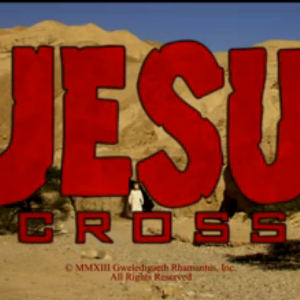
Adam Ericksen is the Education Director for the Raven Foundation, where he uses mimetic theory to provide social commentary on religion, politics, pop culture. He has a Masters in Theological Studies from Garrett Evangelical Theological Seminary where he wrote his thesis “Love and Nonviolence in Christianity and Islam.” Adam is a youth pastor and chaplain. He is also a frequent speaker at conferences. Keep up with Adam by liking the Raven Foundation Facebook page and by following him on Twitter.
Posts By This Author
How Abercrombie & Fitch Became Uncool
I hate Abercrombie & Fitch.
It all started a few years ago. A member of my youth group worked at one of their stores in a Chicago suburb. I was minorly troubled that she was employed at the store. But what really flamed my loathing for Abercrombie was when they asked her to model their clothes for their catalogue. She told me about their offer and I responded in the only way an over-protective youth pastor could:
“NO! Absolutely not! No way in Hell are you doing that!!!”
I don’t think that Abercrombie is evil per se. I only hate them because they stand for everything that I’m against!
Over the weekend, BusinessInsider.com published an article titled “Abercrombie & Fitch Refuses to Make Clothes for Large Women.” The article included a comment made by Abercrombie CEO Mike Jeffries in 2006. He described his business strategy by stating:
In every school there are the cool and popular kids, and then there are the not-so-cool kids. Candidly, we go after the cool kids. We go after the attractive all-American kid with a great attitude and a lot of friends. A lot of people don’t belong [in our clothes], and they can’t belong. Are we exclusionary? Absolutely. Those companies that are in trouble are trying to target everybody: young, old, fat, skinny.
The Spirituality of Sports and the Common Good
Editor’s Note: Jim Wallis’ latest book On God’s Side: What Religion Forgets and Politics Hasn’t Learned About Serving the Common Good is sparking a national conversation of what it means to come together on issues that traditionally divide the nation. Bloggers Adam Ericksen and Tripp Hudgins are having that conversation here, on the God’s Politics blog. Follow along, and join the discussion in the comments section.
In his post “Lattes for the Common Good,” Tripp states that working for the common good starts in mundane places, like a coffee shop. These are the places where we practice neighborliness. Here’s Tripp’s brilliant point:
I wonder if one of the things that we can think about in terms of the common good is learning to practice neighborliness in the inconsequential moments so that when we face the bigger political difficulties of our shared life — when we start talking about the common good in the larger sense around some of the other issues like violence, and fear, and money — that maybe if we've already built up habits we can have these larger conversations with greater ease.
Jim Wallis says something very similar in his book On God’s Side. When it comes to the common good, Wallis states, “I have never seen the real changes we need come from inside politics. Instead, they come from outside social movements” (295).
According to Wallis, for those social movements to make any real change in our politics they must be based on the biblical command to “love your neighbor as yourself.” Indeed, On God’s Side begins with a reflection on the Golden Rule. And, as Tripp says, “learning to practice neighborliness” is learning to practice loving our neighbor as we love ourselves.
But there is a tension in Wallis’s book that, for me, is unresolved. That tension is clearly seen when Wallis talks about baseball.
Surprising Our 'Enemies:' What If We Flipped the Script?
Editor’s Note: Jim Wallis’ latest book On God’s Side: What Religion Forgets and Politics Hasn’t Learned About Serving the Common Good is sparking a national conversation on what it means to come together on issues that traditionally divide the nation. Bloggers Adam Ericksen and Tripp Hudgins are having that conversation here, on the God’s Politics blog. Follow along, and join the discussion in the comments section.
What if we surprised our enemies?
I mean, really surprised them. What if we surprised them with something totally unexpected? When our personal, political, and national enemies strike us, they expect us to strike back. That’s been the human script since the foundations of human culture. We mimic violence blow for blow. Only each side wants to be the side who delivers the final blow.
What if we surprised our enemies and changed the script?
Boston Bombings: Deliver Us from Evil
What do you say in the face of evil?
The stories from Monday’s attacks at the Boston Marathon are heartbreaking, gut-wrenching. One in particular stands out to me. A woman was waiting for her husband to cross the finish line when the bombs exploded. For three hours she searched frantically for him, not knowing if he was alive or dead, not knowing if he was frantic and looking for her. Her voice cracked and tears flowed with the raw memory as she told of the moment when she and her husband embraced.
Moments like this, even when they end happily, remind us of our vulnerability. As hard as we try to protect ourselves with heightened security measures, we know that complete invulnerability is impossible. I am vulnerable. My wife is vulnerable. My children are vulnerable. We cannot escape it.
In the face of gun violence and bombings, gender violence and rape, we would be irresponsible not to ask big questions about evil and human vulnerability.
A few hours after the bombing, President Barack Obama addressed our natural desire to carry out justice after these events.
[M]ake no mistake; we will get to the bottom of this. We will find out who did this, we will find out why they did this. Any responsible individuals, any responsible groups, will feel the full weight of justice.
Like the president, I want to take action against evil and I want to know I am secure. I hate admitting that I’m vulnerable. But the president’s words didn’t reassure me. They made me feel more vulnerable because the phrase “full weight of justice” is always a veiled call to violence.
Justin Bieber at the Anne Frank House: Our Addiction to Scandal
On Saturday, the pop culture icon Justin Bieber visited the Anne Frank House in Amsterdam while on a world tour. At the end of his visit to the museum, Bieber wrote a message in the guest book.
His three-sentence message has become Big News. Sunday afternoon I checked my Huffington Post app and discovered this headline on the homepage, “Fury Erupts over Bieber’s Obnoxious Anne Frank Comment.” On Monday morning, the scandal was front page news on Yahoo.com, “Justin Bieber Gets Blasted for Anne Frank Comment.” The New York Times reports that Bieber’s comment “set off a maelstrom of criticism.”
What did Bieber write in the guestbook?
March Madness and How To Love Thy Rival
Watching sports is not as much fun as it used to be.
I blame Jesus for that, because he just had to say:
“Love thy enemy.”
Or, as Chad Gibbs puts it in the title of his fantastic book on spirituality and sports, Love thy Rival.
Top 3 Reasons Rob Bell Matters: Rob Bell Blogalogue Part 8
(The Controversial figure Rob Bell has created another firestorm with his latest provocative book What We Talk About When We Talk About God. Raven Foundation Education Director, Adam Ericksen and Tripp Hudgins will share our thoughts on the book in this blogalogue. We invite you to join the discussion by leaving a comment.)
Sadly, this is our last post on Rob’s book What We Talk About When We Talk About God. As Tripp Hudgins stated, my previous post was a lengthy missive, and yet I feel like we have just scratched the surface of this book. I promise to make this concluding post shorter, but I’m tempted to inflict upon you the longest post ever! because there is so much in these final 30 pages.
I noticed that we haven’t made a list yet, and every blogalogue needs a list! So, to keep this from becoming the longest post ever!, I offer you the top 3 reason that Rob Bell matters.
God For Us and The Scandal of Being Good (Rob Bell Blogalogue Part 6)
Tripp Hudgins touched on something in his post yesterday that is essential to this discussion about Rob Bell and his book What We Talk About When We Talk About God. He wrote:
Why does Rob write this stuff? Whose side is he on? Yours. Mine. Ours … Rob is on everyone’s side. He’s trying to live like the God who meets him when he’s surfing, hanging with his kids and friends, walking along the city streets, or doing just about anything.
Tripp, how can you say such a thing! “Rob is on everyone’s side”? How could Rob possibly be on the side of those who ruthlessly criticize him?!? I’m sorry my friend, but that’s just ridiculous and absurd.
And yet the ridiculous and absurd is at the heart of the Christian message. I hope that Rob is for everyone. Not because I need Rob to be on my side, nor because I need his approval or acknowledgment. (Although, I wouldn’t mind it!) Rather, I hope it’s true because at the heart of the Christian message lies the ridiculous, absurd, and even scandalous message that God is for everyone.
OMG! Kim Kardashian Gains Weight While Pregnant!
Last week, a member of my youth group texted me this picture of a pregnant Kim Kardashian. It’s a recent cover from Star Magazine. She added these sarcastic words:
What? How dare she gain weight while carrying another person in her stomach!
My heart broke. We have a big problem of objectifying women in our culture. I’d just written about the Steubenville rape case and the need to finally answer the ancient question “Am I my brother and sister’s keeper?” with a definitive yes. Rape is an extreme and obvious example of the objectification and violence against women.
But what about the cover of a magazine whose central thesis is: OMG, a pregnant person gains weight?
Faith and Doubt Dancing on Good Friday (Rob Bell Blogalogue Part 4)
(The Controversial figure Rob Bell has created another firestorm with his latest provocative book What We Talk About When We Talk About God. Raven Foundation Education Director, Adam Ericksen and Tripp Hudgins will share our thoughts on the book in this blogalogue. We invite you to join the discussion by leaving a comment below.)
Tripp Hudgins always gets me thinking. He is right that Rob’s chapter “Open” in What We Talk About When We Talk About God is about science and religion but that it’s also not about science and religion. This is the longest chapter of the book, and it’s full of scientific information that points to the mystery of the material world. What’s the point? As Tripp states, Rob is “asking for a little humility. He’s asking for a little poetic imagination. He’s asking for curiosity.”
That’s the point of the next chapter, too. Titled “Both,” in this chapter Rob points out a major problem we have with “God-talk.” That problem is language. Tripp set me up for this at the end of his post by asking, “Are words actually enough? Ha! Write about that. Words. Words. Words.”
When I was in seminary I learned about apophatic theology, or negative theology. It tries to define God by what God is not. A 9th century apophatic theologian named John Scottus Eriugena asserted, “We do not know what God is. God Himself does not know what He is because He is not anything. Literally, God is not because He transcends being.”
The God of Jesus: Beyond Religious Tribalism (Rob Bell Blogaglogue, Part 2)
(The Controversial figure Rob Bell has created another firestorm with his latest provocative book What We Talk About When We Talk About God. Raven Board Member Tripp Hudgins and I will share our thoughts on the book in this blogalogue. We invite you to join the discussion by leaving a comment below.)
Thank you, Tripp Hudgins, for your “Open Letter to Rob Bell.” As always, you are inspirational and thought provoking. The letter provides a great introduction to our blogalogue on Rob’s latest book What We Talk About When We Talk About God. I want to emphasize one point you make and relate it to the first chapter of the book, called “Hum.”
You claim that, “This book is not about a ‘new’ thing. It’s simply about God and how we come to know God in this world.” This is such a great point because Rob isn’t making up new ways to talk about God. Throughout the book, Rob explores what God has done in the past and how God continues to pull all humans into a global future that has “greater and greater peace, love, justice, connection, honesty, compassion, and joy” (19).
Steubenville Rape Case: From Blame to Responsibility
The tragedy of the Steubenville rape case has provided a moral challenge to our nation. We are caught up in a highly emotional cycle of blame as we debate who the real victim is in this case. I find myself asking two questions: Why is our nation obsessed with the story and what does this story mean for us as individuals and as a culture?
My Family
I’ve always wanted a daughter. The problem is that adult Ericksen dudes tend to produce baby Ericksen dudes. My dad has 4 siblings — all brothers. I have mostly male cousins. So, when my wife and I started having children … yep … two dudes.
My Church Family
I’ve been a youth pastor for about six years, and for a long time I thought the closest I’d ever get to having a daughter was to pseudo-adopt the girls in my youth group. Actually, they first pseudo-adopted me by claiming me as their “Father” on Facebook. (Hey, it’s on Facebook, so my pseudo-fatherhood status is legit.) As something of father figure for these teenage girls, each youth group session I discussed with young women and men how the Christian faith is leading us into patterns of love and non-violence. Frequently after our sessions, one of my pseudo-daughters will tell me she’s dating a boy. So, of course, after teaching them about non-violence, I say to each of them with a straight face:
If he ever touches you, I will personally kick his ass.
Saint Patrick, Druids, and the Snakes: The Truth is in the Middle
I love St. Patrick’s Day.
The one day of the year when, for better or worse, Western culture allows me to claim my non-existent inner Irishman.
Kiss me, baby.
Okay. I’m done.
There are many stories and legends about the fascinating life of St. Patrick. One of the most famous legends recounts how this great 5th century saint banished all of the snakes from Ireland. Bad snakes. Bad.
My work at the Raven Foundation during the last few years has taught me to be suspicious of such legends. In fact, we might call them myths. Myths cover up scapegoating of human beings by telling the story in a more innocuous way. So, instead of saying we banish humans, we say we banished snakes.
Interestingly, the last glacial period (some 10,000-100,000 years ago, depending on whom you ask) beat St. Patrick to the snake banishing. But, Christian tradition has given Patrick all the credit. So, if there weren’t snakes around during Patrick’s day, what’s with the legend?
Top 4 Reasons Jesus Is My Favorite Feminist
Last Friday was International Women’s Day. It was a day of celebrating how far we’ve come, but also a reminder of how far we need to go.
I’m reminded of an experience I had with a member of my youth group a few years ago. We were volunteering for a social service project. A member of the group happened to be named Eve and we thought it was fun to play up the joke. I’d start greeting people, “Hi! I’m Adam,” and then Eve would chime in, “and I’m Eve!”
We always received the strangest looks, which, of course, is why we did it. But this time it was different. A man at the service project actually said,
“Oh. So you’re the one to blame.”
Eve was able to laugh it off and respond with grace, but I was pissed. I instinctively scowled at the man. It was a deep blow to me because, once again, religion was being used to put women down. But this time it was personal. Religion was being used to put down a member of my youth group.
Of course, religion hasn’t always been good to women. Or, maybe it would be better to say that religious men have used religion as a weapon to make women feel inferior. Whenever we blame someone else it’s a sign of our own weakness and insecurities. We don’t have the courage to deal with our own inner turmoil so we blame someone else. This is classic scapegoating and we men have been scapegoating women in this way since the beginning of human history. It’s pathetic. International Women’s Day is a reminder to me that women and men need to work together to end the religious bigotry against women.
My model for this is Jesus, my favorite feminist. [1]
So, in the spirit of International Women’s Day, I offer you the top 4 ways Jesus included women as full members of his posse.
SNL’s 'DJesus Uncrossed,' Mark Driscoll, and the American Worship of Satan
Whenever I talk with people about Jesus and nonviolence, a curious thing happens. Someone will inevitably raise his hand (and it’s always his hand), call me a wuss, and then accuse me of making Jesus-Christ-Our-Lord-And-Savior into my own wussy image.
First, the accusation that I’m a wuss is totally true. No one can surpass my wussiness. I run from confrontation, and if I ever get into a fight my money is on the other guy.
Now, to the second accusation that a nonviolent Jesus is a projection of my own wussy imagination: That is false and, in fact, the reverse is true – a violent Jesus is a god made in our own image. As a self-professed wuss, I would love a bad-ass-machine-gun-toting Jesus who violently defends me against my enemies. I want the Jesus depicted in Saturday Night Live’s sketch DJesus Ucrossed. (A sketch satirizing Quentin Tarantino’s Django Unchained.) As David Henson brilliantly states in his post “DJesus Uncrossed: Tarantino, Driscoll and the Violent Remaking of Jesus in America,” the sketch “pulls back the curtain and shows us just how twisted our Jesus really is: We want a Savior like the one SNL offers. We want the Son of God to kick some ass and take some names. Specifically, our enemies’ names.”
David goes on to quote Mark Driscoll, a megachurch pastor from Seattle whose theology of hate has had a major influence on American Christianity. Driscoll states,
In Revelation, Jesus is a prize fighter with a tattoo down his leg, a sword in His hand and the commitment to make someone bleed. That is a guy I can worship. I cannot worship the hippie, diaper, halo Christ because I cannot worship a guy I can beat up.
Why You Should Pray Like a Six-Year-Old Boy
It was a proud moment in the Ericksen household. The five of us sat down for lunch and my six-year-old boy said, Let’s pray.
This is every pastor’s dream. Usually I have to coerce people into prayer. Now my boy is offering to pray. With great pride and a smile on my face I said, Yes, my Son. Will you lead us in prayer?
He took a pensive moment and agreed. We bowed our heads, closed our eyes, and then … this happened,Hi God! I want something really awesome for Christmas next year! Please get me something really great! Okay. That’s all. Amen.
Both of my boys began to laugh. My proud moment was gone and replaced by a bitter sense of disappointment. I instinctively thought to myself, “Christmas! It’s February, Dude. I hope you have a lot of patience, cause you’re not getting anything remotely close to ‘awesome’ for at least another 10 months! That’ll teach you to laugh at prayer. And, by the way, you shoulda’ prayed for freakin’ world peace!!!”
Book Review: 'Rob Bell and a New American Christianity'
"Can we watch a video with that guy who has the weird hair and the dark rimmed glasses?" -Member of My Youth Group
"Love wins the in the sense that God’s will is the reconciliation of all things—the soul, the body, the earth, the cosmos, and everything in it." -James Wellman, Rob Bell and a New American Christianity, 59.
American Christianity is experiencing a theological shift. Many have tried to explain it, sometimes making the shift far more confusing than it actually is. Fortunately, the shift can be explained quite simply, and while it may be new to American Christianity, it is actually very old. Indeed, it dates back 2,000 years. The shift boils down to the two theological axioms of the New Testament, both found in the letter 1 John:
“God is light and in him there is no darkness at all” (1:5) and “God is love” (4:8 and 16).
Those statements, while simple, are far from simplistic. John was bold in affirming these statements. He knew he had to give it to us straight – probably because he and the other disciples had a hard time understanding what Jesus meant in his teachings and parables. So, John cut to the chase and simply claimed that Jesus reveals, “God is love and God is light. There is absolutely no darkness within God.”
David’s Sling: Israel, Hezbollah, and the Path to Peace
Israel reported last week that it successfully tested its latest missile defense system. Known as “David’s Sling,” it is designed to shoot down midrange missiles from Hezbollah rockets originating from Lebanon.
I don’t want to get bogged down in a discussion about Israel’s right to defend itself. What I want to do is explore the biblical reference to “David’s Sling” and what it might mean for us. The name is an obvious allusion to the story of David’s victory over Goliath. It’s a favorite biblical story for many Sunday school teachers, but a conundrum for those teachers who take mimetic theory seriously. Mimetic theory claims that violence belongs to humans, not to God. It also states that the Bible progressively reveals this message about violence to us. And yet, the connection between God and violence permeates the Bible, with God apparently sanctioning violence against God’s enemies.
So we rightly ask, “What about all the violence in the Bible?”
Dropping Out Of Our National Religion
"When you really drop out of the national religion of shopping you gain all kinds of time and a capacity to do what you might really prefer to do … and you gain a chance to be about the number one priority, which is to try to ease the burden on the poorest people in our world, especially those who are stuck in warzones." – Kathy Kelly, Peace Activist
This year my hometown of Chicago hosted the NATO summit. Thousands of protestors came to voice their concerns about war and the economy. Along with peace journalist Bob Koehler, I had the great fortune to interview one of those protesters, Kathy Kelly. (You can listen to the interview on my Voices of Peace podcast here.) Kathy is a three-time Nobel Peace Prize nominee and lives a fascinating life. She is an advocate of nonviolence on a global scale and has been arrested more than 60 times in the U.S and abroad for nonviolent protests. Kathy has traveled to Afghanistan and Iraq more than 26 times, remaining in dangerous combat zones during U.S.-led military strikes. She risked her life by going to Baghdad during the United State’s infamous “Shock and Awe” campaign.
Kathy was the perfect guest to help us explore our overarching question at Voices of Peace – How do we build a lasting, sustainable global peace? She knows firsthand about the violence in our world and she’s on a mission to transform that violence into peace.
The Truth About Thanksgiving: Why You Should Celebrate
"The antidote to feel-good history is not feel-bad history but honest and inclusive history." – James Loewen, Lies My Teacher Told Me, 92.
It’s becoming increasingly difficult for Americans to celebrate Thanksgiving. This Thanksgiving, as we take turns around the dinner table sharing why we are thankful, a sense of awkwardness settles in. The awkwardness is not only due to the “forced family fun” of having to quickly think of something profound to be thankful for. (Oh, the pressure!) The growing awkwardness surrounding Thanksgiving stems from the fact that we know that at the table with us are the shadows of victims waiting to be heard.
Humans have an unfortunate characteristic – we don’t want to hear the voice of our victims. We don’t want to see the pain we’ve caused, so we silence the voice of our victims. The anthropologist Rene Girard calls this silencing myth. Myth comes from the Greek worth mythos. The root word, my, means “to close” or “to keep secret.” The American ritual of Thanksgiving has been based on a myth that closes the mouths of Native Americans and keeps their suffering a secret.


















